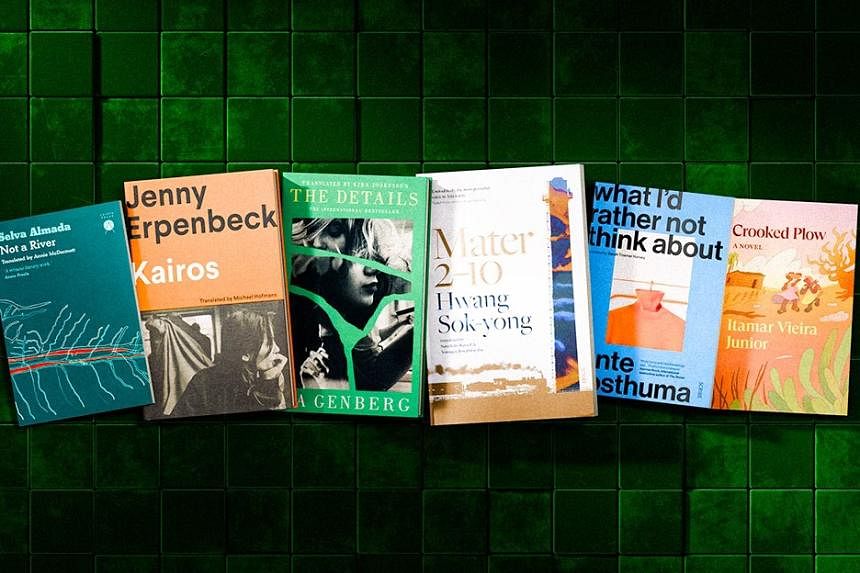LONDON – A novel about a woman grieving her twin and another tracing North and South Korean history through a family of railway workers are among the six titles nominated for the International Booker Prize 2024, the prestigious award for fiction translated into English.
Jenny Erpenbeck, a German novelist often mentioned as a contender for the Nobel Prize in literature, is the most well-known author on the list of nominees, which the prize’s judges announced on April 9.
Those judges shortlisted Erpenbeck for Kairos, her fourth novel. Translated from German by Michael Hofmann, Erpenbeck’s book is about a torrid affair between a student and a 50-something novelist in communist East Germany.
Dwight Garner, reviewing Kairos for The New York Times, said it was a “beautiful bummer” of a novel, in which a reader could wallow.
The other shortlisted titles include Itamar Vieira Junior’s Crooked Plow, translated from Portuguese by Johnny Lorenz. The only debut novel nominated in 2024, Crooked Plow is about two sisters who take different approaches to coping with poverty in their rural community.
Anderson Tepper, in a review for The New York Times, said “Vieira provides a compelling vision of history’s downtrodden and neglected”.
The International Booker Prize is distinct from the Booker Prize, which is for novels written in English, although both have the same prize money of £50,000 (S$85,000). For the International Booker, the winning author and translator share the money equally.
Ms Eleanor Wachtel, chair of the judges, said in the news release that the shortlist “opens onto vast geographies of the mind, often showing lives lived against the backdrop of history, or, more precisely, interweaving the intimate and the political in radically original ways”.
“Some seem altogether timeless in their careful and vivid accounts of the dynamics of family, love and heartbreak, trauma and grief,” she added.
Alongside Erpenbeck’s and Vieira’s novels, the other nominees are:
• Selva Almada’s Not A River, translated from Spanish by Annie McDermott, about three men on a fishing trip that returns them to the site of a tragedy. Michael Kerrigan, reviewing Not A River for The Times Literary Supplement, said Almada’s fiction was “austere yet deeply humane, and exhilaratingly accomplished”.
• Jente Posthuma’s What I’d Rather Not Think About, translated from Dutch by Sarah Timmer Harvey, about a woman mourning the death of her twin brother after he dies by suicide. In the news release, the Booker’s judges called the book “uniquely insightful and tender in its humanity”.
• Ia Genberg’s The Details, translated from Swedish by Kira Josefsson, in which an unnamed narrator reflects on past relationships. Catherine Lacey, in a review for The New York Times, said Genberg’s “marvellous prose” was “a kind of fever, mesmerising and hot to the touch”.
• Hwang Sok-yong’s Mater 2-10, translated from Korean by Sora Kim-Russell and Youngjae Josephine Bae. This political novel opens with a laid-off factory worker staging a protest, then tells the story of three generations of his family. Maya Jaggi, reviewing it for The Guardian, said Hwang’s novel was a masterpiece that provides a rarely heard “worker’s-eye view of the 20th-century history surrounding Korea’s partition”.
The 2024 winner will be announced during a ceremony at the Tate Modern art museum in London on May 21. NYTIMES

